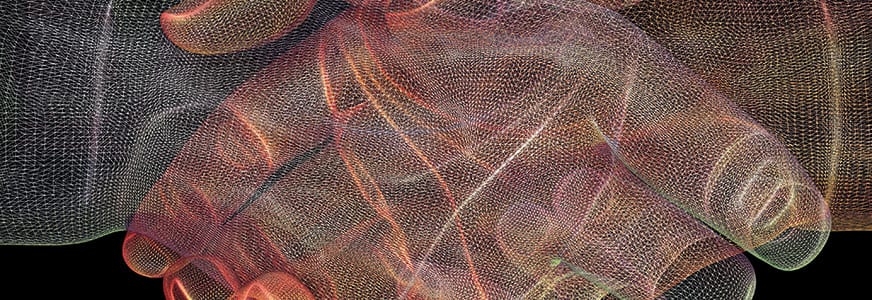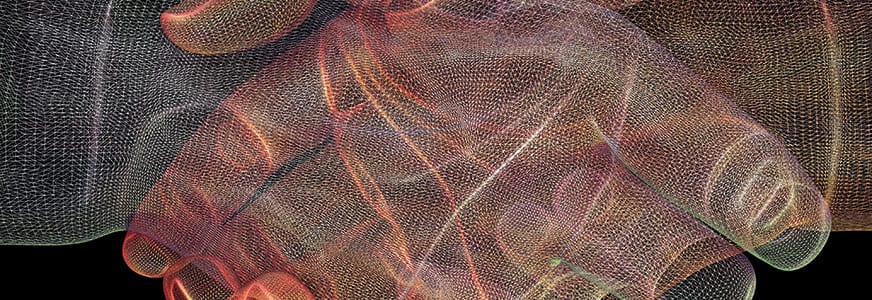
- Gerhard Bystricky
- Head of Product Management Payments Germany, UniCredit
Linking the Physical, Digital and Financial Worlds: IoT Meets Cash Management

By Gerhard Bystricky, Head of Product Management Payments Germany, UniCredit and Henri de Jong, Head of Business Development, Quantoz N.V.
One of the most innovative and far-reaching technologies that has emerged in recent years is the Internet of Things (IoT), with its potential to embed communication into industrial and domestic appliances, machines and devices, to send and receive data. But the potential for IoT extends far beyond enabling a machine to order its own replacement supplies and parts. In particular, by combining the communication value of IoT with innovative payment capabilities, leveraging virtual accounts and blockchain technology, the result is a powerful and potentially disruptive cash management value proposition. Furthermore, this is not a vision of the future, but a proposition that can be achieved today.
Project background
In order to bring the most effective digital solutions to their corporate clients, transaction banks are increasingly turning to collaboration with emerging financial technology companies (´fintechs´). Many banks have set up a range of initiatives such as digital labs, boot-camps and accelerator programmes for fintechs. Global Transaction Banking at UniCredit always strives to harness innovation to create a new customer experience and deliver cost-effective ways of supporting existing challenges and facilitating new business models. In Global Transaction Banking at UniCredit we see this type of collaboration – based on client problems and powered by bank expertise and fintech innovation – as an important way of achieving this objective, with the potential to offer enhanced solutions to clients. Consequently, we are actively pursuing fruitful collaborations.
Leveraging familiar solutions
Many corporate treasurers are already familiar with virtual accounts. These are often established as part of a collections on behalf of (COBO) structure within an in-house bank. One entity collects cash on behalf of group companies, therefore removing the need to hold and manage accounts per entity. This is a valuable way of centralising collections, and helps to reduce the number of bank accounts. However, with large volumes of collections coming into a single account, there can be difficulties both with reconciliation and posting of incoming flows. Furthermore, customers may not necessarily be willing to pay to an account outside their home country. A virtual account solution enables companies to provide customers with local account details (the ‘virtual’ account), but these are linked to a central collections account. These virtual account numbers can be assigned to each entity, through to individual customers, product lines etc. This makes it easier to reconcile the collections account, and post incoming flows to the relevant intercompany account and customer credit account automatically.
|
IoT Payments with Quantoz and UniCredit
|
[[[PAGE]]]
A powerful combination
However, the potential for virtual accounts extends significantly beyond in-house banking, as the new solution designed by Quantoz and UniCredit demonstrates, taking the concept of virtual accounts one step further by combining it with IoT. In the past, an ‘identity’ could be assigned only to a person or organisation. By leveraging Quantoz blockchain technology, a device, machine or object can acquire an identity. The missing piece, however, is that a device cannot have a bank account. By linking the device or machine to a virtual account, which in effect becomes a digital wallet, the value chain is complete, combining cash management and IoT into a single solution. In doing so, it creates an entirely new value proposition and facilitates the business models of the future today.
Innovation in practice
Let’s consider the use case of a car sharing company. IoT-enabled cars exist today, with black boxes and trackers now commonplace. The car can transmit data on its location, its mileage, toll charges, fuel levels etc. By linking this data with a charging structure, and providing the car with a virtual account number, the company can provide users with full usage statements and invoices based on the information from the car.
The concept of machine identity through blockchain marks a step change in IoT, and when integrated with virtual accounts, they can be connected into a payments and cash management infrastructure, including micropayments. This additional step is crucial to the ability to integrate IoT into viable and efficient business models, and monetise these business models, but there are multiple use cases across a wide variety of industries. Machines or domestic appliances can order their own spare parts, or monitor time and consumables, which is valuable in facilitating the sharing economy. The energy industry is also ripe for innovation: for example, solar panels on one house could fuel an electric charging hub for its neighbours, hinting at some of the vast potential for smart cities.
The business imperative
Many industries are already testing and introducing IoT, and but a crucial factor in integrating IoT into viable business models is the ability to extend from the physical and communication supply chain to the financial supply chain. According to a McKinsey Global Institute report[1], linking the physical and digital world could add $11.1tr in economic value by 2025. This newest initiative pioneered by UniCredit and Quantoz links together the physical, digital and financial worlds, which has major implications for clients’ digital reinvention strategy. While treasury would not historically have played a major role in defining or delivering on digital agenda, this has now changed. By bringing virtual accounts to their companies’ IoT strategy, treasury can act as facilitator for innovation, differentiation and competitive advantage.
|
Quantoz N.V. Based in the Netherlands, Quantoz is a multiple-award winning developer of blockchain-based solutions. In 2016, Quantoz was named as one of the 50 emerging Fintech stars by KPMG and selected from more than 500 companies to participate in the Techfounders Accelerator Programme. Quantoz’ Quasar solution is a distributed, permissioned blockchain-based digital cash system with built-in rules to fulfil relevant regulatory and compliance requirements. It enables people or machines to receive or send money without the need for intermediary payment processors or credit card companies. The wallets connect to the Quasar blockchain nodes through an open API, with Quasar nodes run by regulated service providers or banks. |
|
UniCredit Corporate & Investment Banking UniCredit is a pan-European commercial bank providing unique access to western, central and Eastern Europe with a strategic presence in 14 European core markets and an international network spanning another 16 countries worldwide. Our Corporate & Investment Banking division serves 1,500 multinational corporates and key financial institutions, and supports the Group’s corporate banking units in delivering services to 600,000 corporate and public sector clients. Furthermore, we deliver investment solutions for 24 million retail and private banking clients. |
|
Gerhard Bystricky was the programme manager for the SEPA implementation in Germany and global product manager for SEPA in Austria, Italy and CEE. Under his management, UniCredit has introduced innovative products such as virtual accounts and bank service billing reporting. He is a member of various payment working groups at national and international levels. |
|
Henri de Jong is responsible for business development at Quantoz following a 25-year career of bringing new technologies to market, from the first route planning systems, digital road maps and electronic publications through to energy, logistics and healthcare. His focus now is on developing Quasar, the Quantoz digital cash solution. |
Notes
1 McKinsey Global Institute Report, ‘The Internet of Things: Mapping the value beyond the Hype’
 Gerhard Bystricky
Gerhard Bystricky  Henri de Jong
Henri de Jong 








